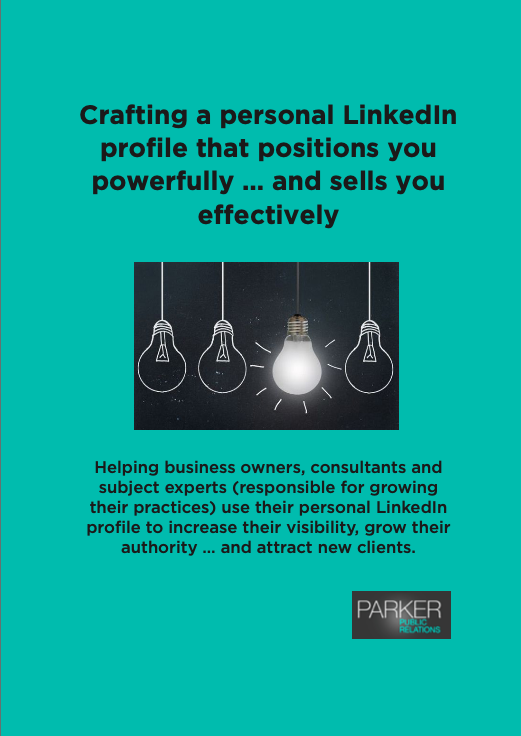
But hang on, isn’t that the job of the public relations and marketing team, is the typical response I get from CEOs when I query why they’re not active on social media?
The other top responses to my pesky question:
- I could end up saying something I shouldn’t.
- What if an unhappy customer uses my posts to voice their dissatisfaction with the organisation.
- I’ve got too much on my plate
- I’m way too tired to even be bothered…
I fully understand this logic and reasoning but sadly the world has changed and so have the expectations of our leaders.
Their clients, investors, partners and employees expect to hear directly from them. After all they’re the face of their organization and the clearest representation of its culture and brand.
They want the CEO to be telling them where the organisation is heading and why it is or isn’t travelling well. They also want their insights on matters impacting their industry, not to mention their stance on issues of public or social importance.
And they absolutely want to hear from the head honcho when things go horribly wrong!
So, if you as a CEO are missing from social media or not taking advantage of the visibility it offers … people will notice!
Key benefits of getting active on social media
Here are the top EIGHT reasons why you as the CEO should roll up your sleeves and get involved.
These are based on discussions with a handful of bosses who are doing a great job of using social media to communicate powerfully with their key audiences.
1. Socially active CEO build meaningful relationships
While having a strong brand is important to any organisation, ultimately it is the person behind the brand (aka the CEO) who forges relationships and connects with people on a deeper level.
As one of the CEOs I spoke with put it: “We’re the ones having direct conversations with our shareholders, customers, policy makers and the business community. We’re also the ones sharing news about the organisation and its prospects as well as elevating the conversation beyond our organisations and shaping the future of our industries.
“And it is these conversations that are not only building our visibility and profile … but also that of the brand!”
2. Humanises brands
Being socially active puts a ‘face’ to our brand and sets the overall tone, said another.
“We stop being seen as these corporate drones totally lacking in empathy and devoid of personality. Instead, we become real people having real conversations with customers and clients and connecting at a very personal level.
“All this helps build trust and makes us more likeable and relatable … and dare I say, more approachable.”
3. Provides a platform for putting out positive stories
As one of those I interviewed succinctly said: “Being in a position to impart positive messages and tell some of the great stories about our organisations helps counter the often, negative images portrayed in the media.
“It enables us to provide a more balanced picture of who we truly are.”
4. Helps de-escalate a crisis
“Falling share prices. Office closures. Lapses in judgement. Poor behaviour. Being socially active enables us to tackle these issues head-on,” explained another.
“It allows you to jump on a problem instantly, leaving no time for things to fester and get out of control. It allows you to quickly and effectively explain what went wrong and what is being done to address the issue.
“Straight up, it allows you to have that difficult conversation very early on!”
All those I spoke with said that while having the ability to respond rapidly, did not eliminate the potential for negative publicity, it did allow organisations to better manage the message and hopefully “soften the fallout.”
5. Great for retaining and attracting top talent
Being active on social media, according to one company chief, does and continues to break down barriers between the C-suite and employees.
“It provides me a forum to share the great stuff about our organisation and our people … even talk about our values and culture and where we stand on issues of societal importance. Not only is this proving good for employee morale but it’s providing potential employees with an insight into who we are as a brand.
“Are we the kind of business they’d like to work for, do we share the same values and is there future growth at the company? Are we a company worth taking a risk on?
“And it’s usually the CEO’s socials they check out to find this information.”
6. Inspires employees to become brand advocates
“If leaders don’t share company news and content, how can an organisation expect its employees to do so?” stated one CEO.
“How can they expect their people to become brand advocates when their leaders are invisible online?”
Like it or not, she said, employees look to the person at the helm for guidance in this regard.
“If they see the CEO is participating in company initiatives and actively engaging on social media, they are more likely to do the same.”
7. Enables CEOs to position themselves as industry thought leaders
Being socially active enables company chiefs to only act as brand ambassadors but also to become a “voice for the industry” according to one of my cohort.
“It gives us a platform to talk about issues impacting our sector, to share our experiences and expertise, discuss future trends, even challenge industry norms and call out bad behaviour!
“And to be brutally honest, being viewed as a leading voice in your sector is not only good for business but brilliant for your personal brand! It’s something that follows you where-ever you go.”
8. Helps CEOs retain a finger on the pulse of the brand.
One of the less obvious benefits of being on social media, is a more heightened awareness of how people perceive their brands.
“It has allowed me to me to lift the metaphoric veil on how we are viewed by our consumers, employees and shareholders,” said one.
“Having this awareness has and will allow us to make changes where necessary, to shift the culture when needed, and to engage personally with my audiences in order to create a more authentic connection.”
…
Despite the positives associated with being active on social media, research shows that not many Australian CEOs are taking advantage of this opportunity.
A study by media intelligence company, Isentia, found that 69 per cent of Australia’s top 100 corporate leaders had no activity or followers on LinkedIn, while 76 per cent did not use Twitter. A second study by digital reputation advisory group, Propel, found that 85 per cent of ASX200 CEOs are either ‘invisible, inactive or ineffective’ on LinkedIn.
This presents a huge problem for companies and brands that wish to improve customer experience, brand visibility, and employee engagement.
Parker Public Relations provides social media strategy coaching and workshops for CEOs and the leadership team. We help leaders develop their strategy and action plan and learn how to engage with authority and insight on LinkedIn and Twitter.
To find out more, contact Wendy Parker on 0422 694 503 or wendy@parkerpublicrelations.com.au

